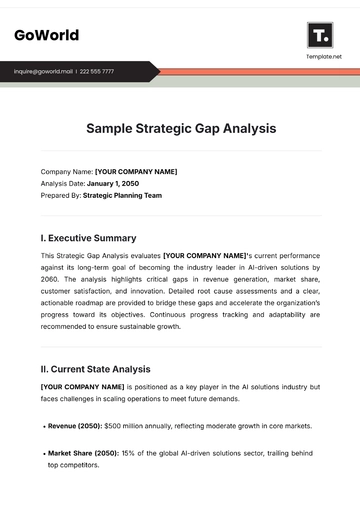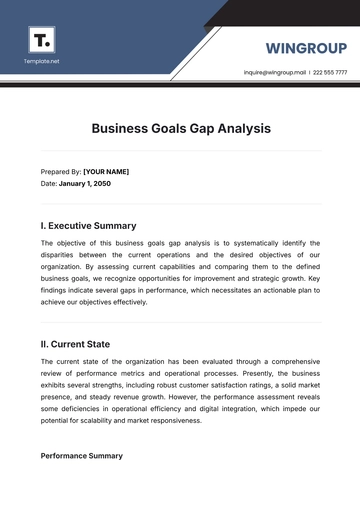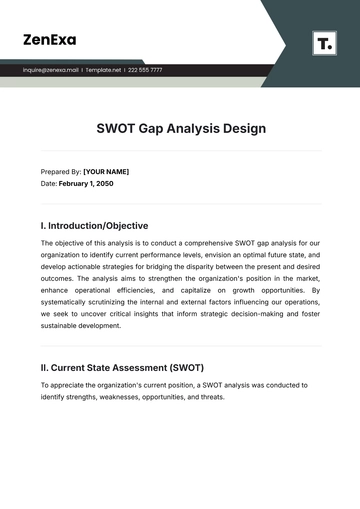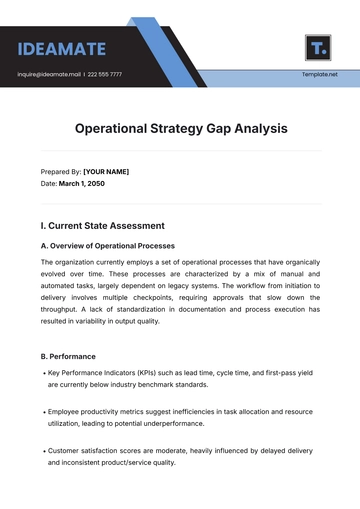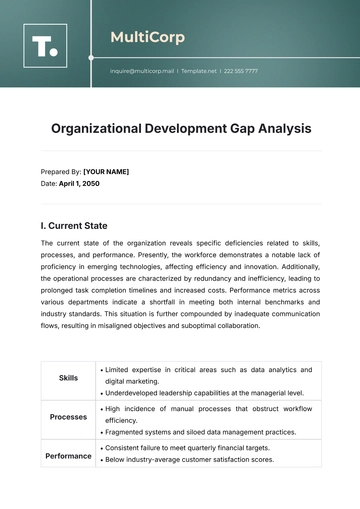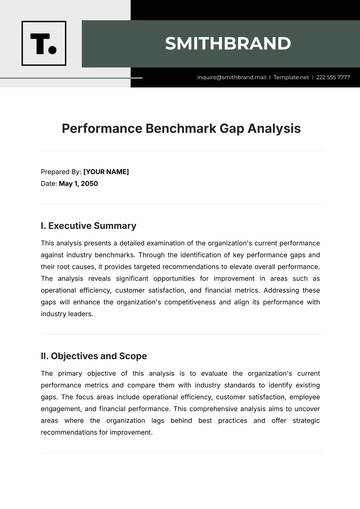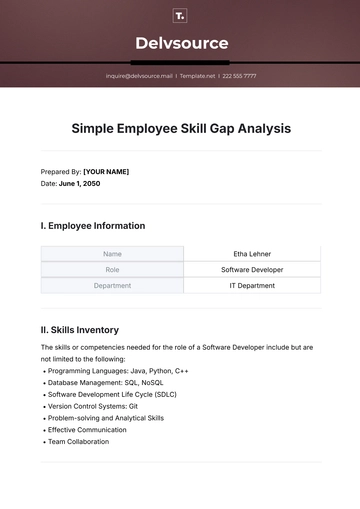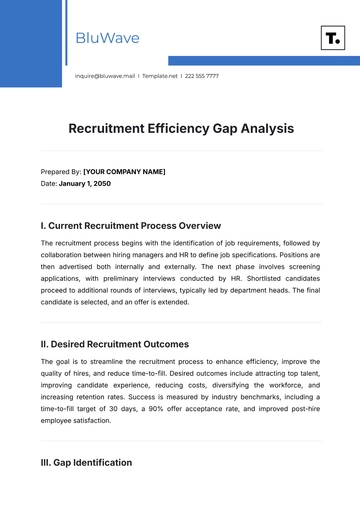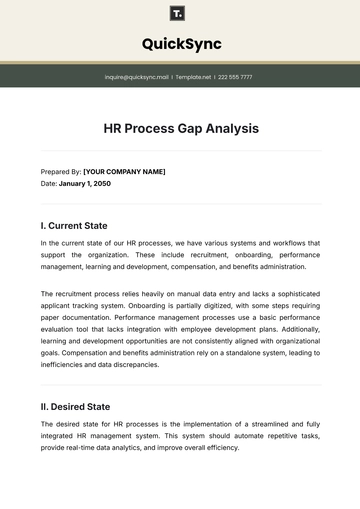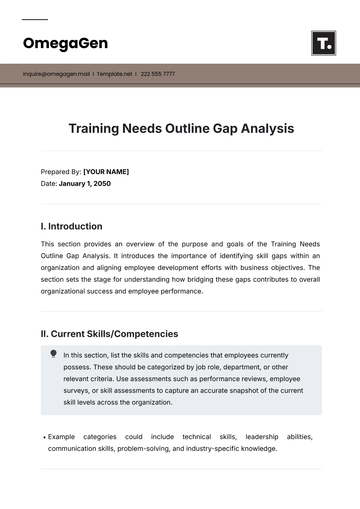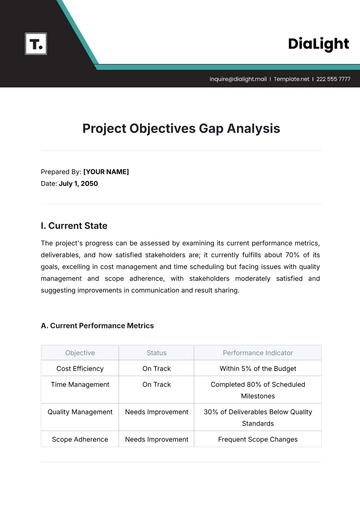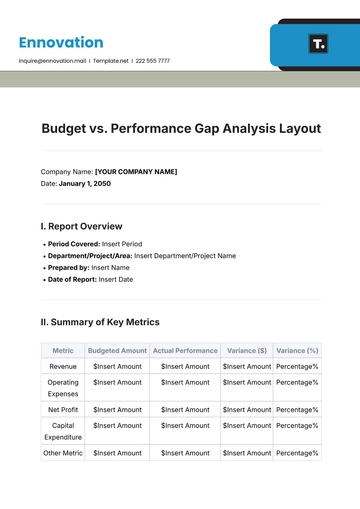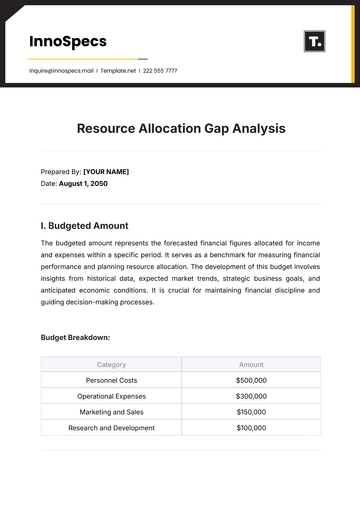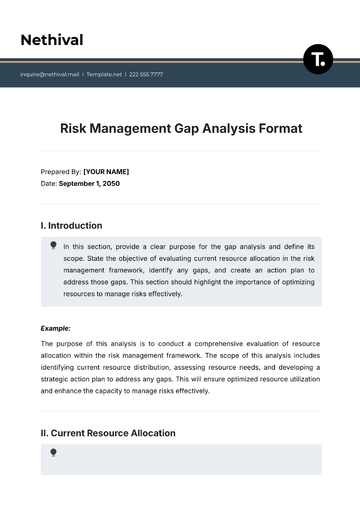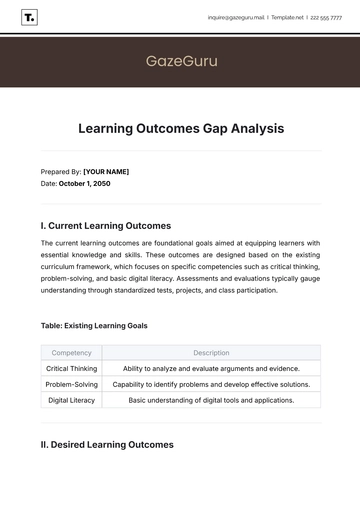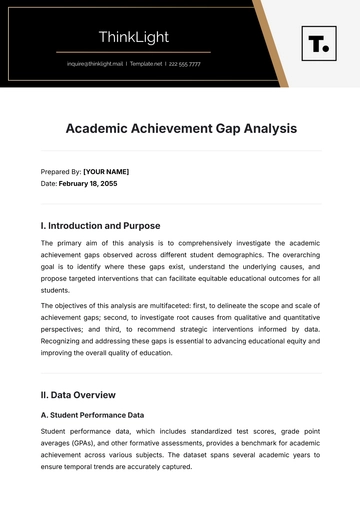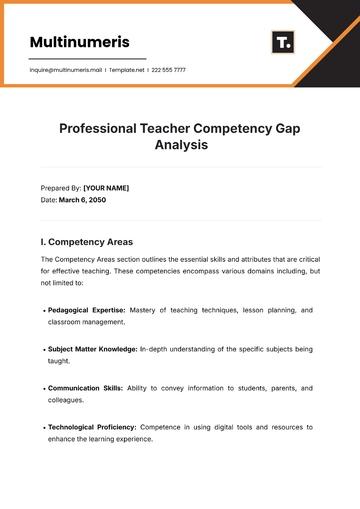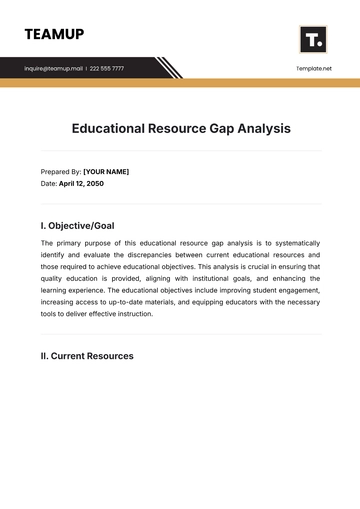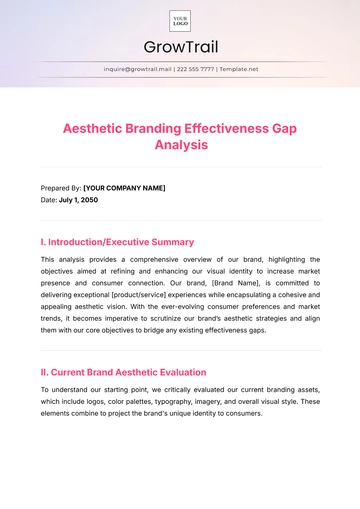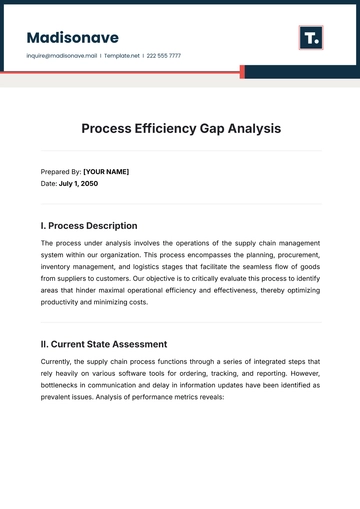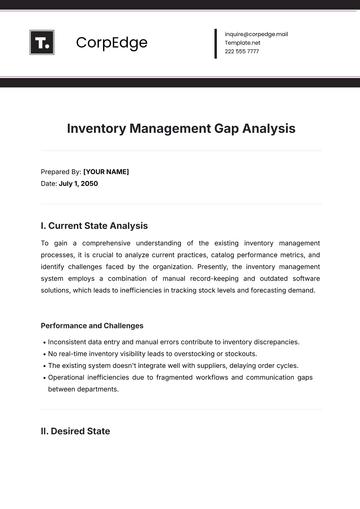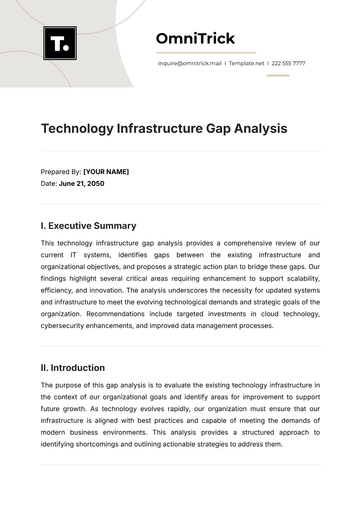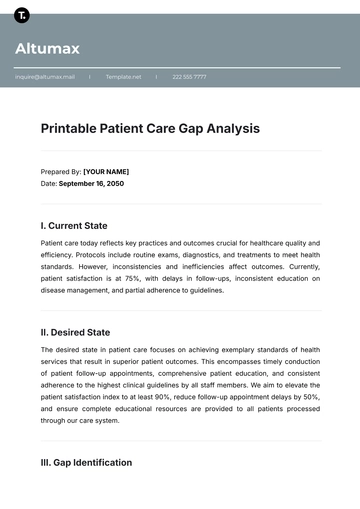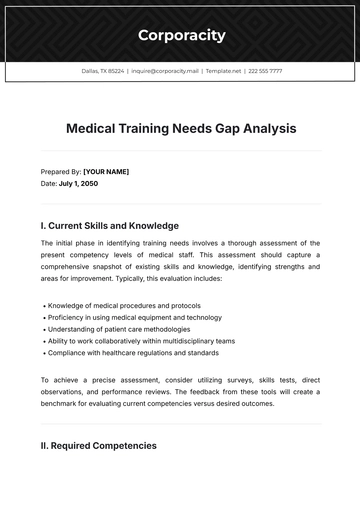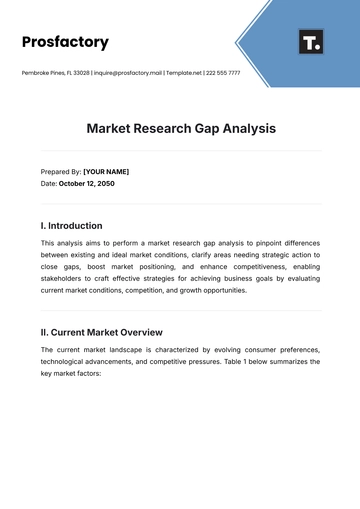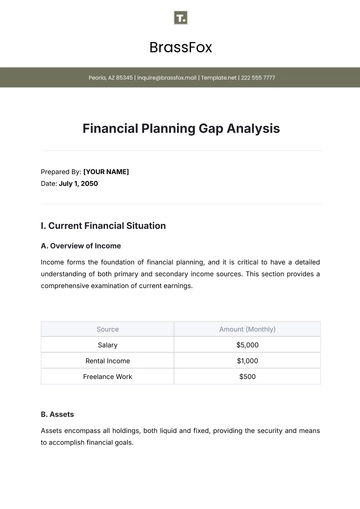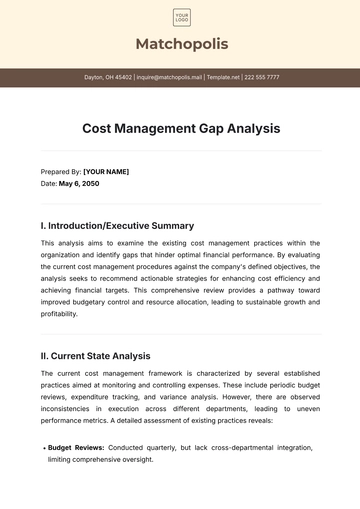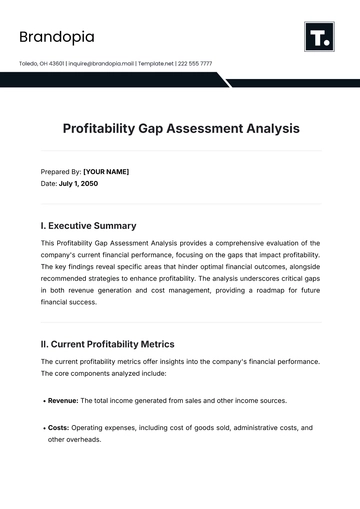Free Law Firm Training Analysis
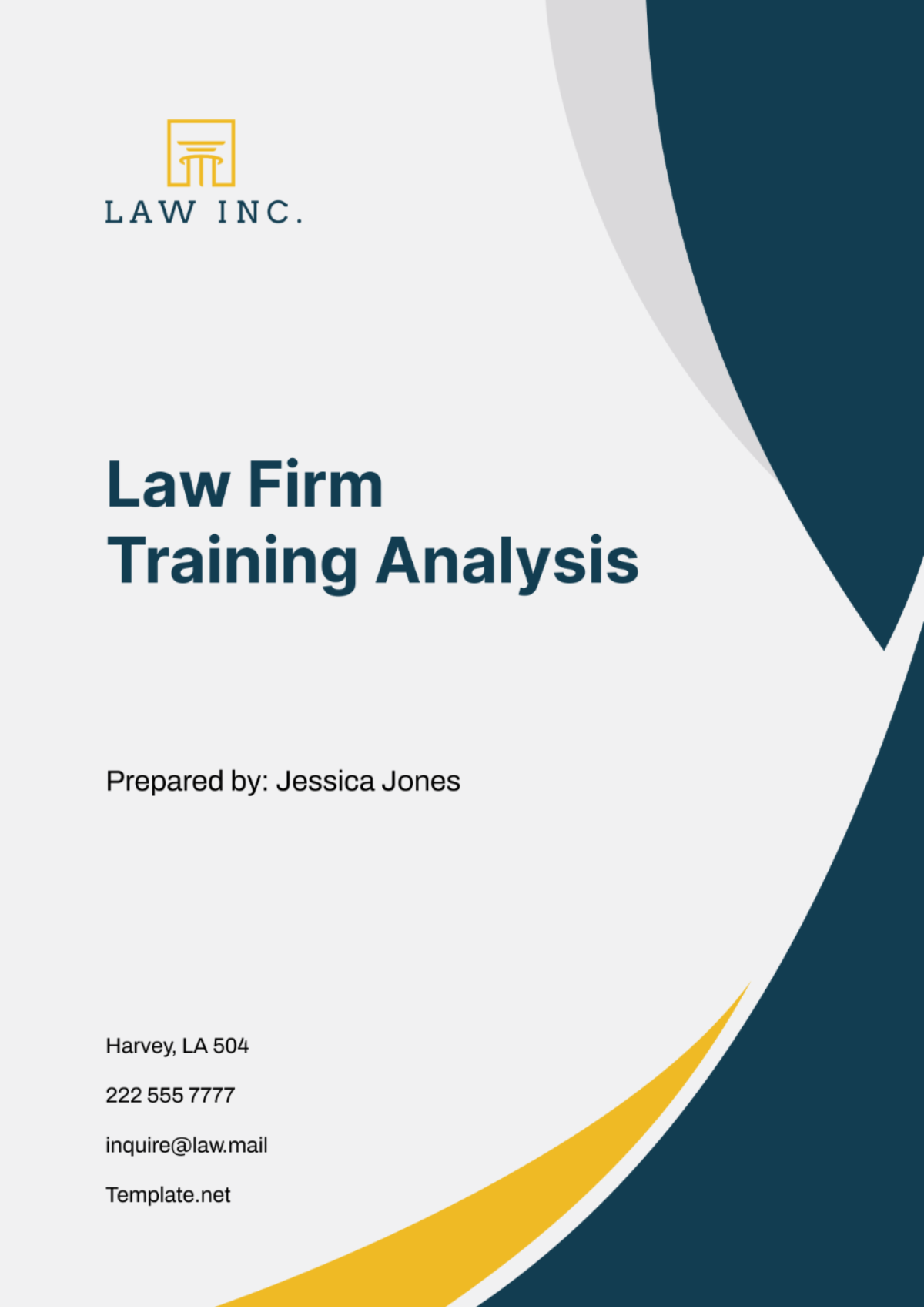
I. Introduction
In today's legal landscape, effective legal writing and research skills are indispensable for lawyers to excel in their roles. [Your Company Name] recognizes the importance of continually enhancing these essential skills among its legal professionals. This training analysis aims to evaluate the effectiveness of our Legal Writing and Research Skills Training program to ensure it meets the evolving needs of our firm and our clients.
II. Content Relevance
At [Your Company Name], the Content Relevance section of our Legal Writing and Research Skills Training program is meticulously crafted to address the diverse needs and challenges encountered by our legal professionals. Our curriculum encompasses an extensive array of topics essential for legal practitioners across various practice areas, ensuring that participants gain the knowledge and skills necessary to excel in their roles.
Understanding the Legal Research Process: We delve into the intricacies of legal research methodologies, guiding participants through the systematic process of identifying, accessing, and evaluating primary and secondary legal sources. By mastering effective research techniques, participants can navigate complex legal issues with confidence and precision.
Utilizing Primary and Secondary Legal Sources Effectively: We equip participants with the skills to leverage a wide range of primary legal sources, including statutes, regulations, and case law, to support their legal arguments and analysis. Additionally, we explore the strategic use of secondary legal sources, such as treatises, law reviews, and legal encyclopedias, to enhance the depth and breadth of legal research.
Conducting Comprehensive Case Law Analysis: Our training delves into the art of case law analysis, teaching participants how to critically analyze judicial opinions, identify key legal principles, and extract relevant precedents to support their legal arguments. Through practical exercises and case studies, participants learn to apply analytical frameworks effectively and strengthen their persuasive advocacy skills.
Crafting Persuasive Legal Arguments: We emphasize the importance of clarity, coherence, and persuasiveness in legal writing, guiding participants in crafting compelling arguments tailored to their intended audience. From structuring legal memoranda to drafting appellate briefs, participants learn to articulate complex legal concepts in a manner that is accessible and persuasive.
Enhancing Clarity, Coherence, and Conciseness in Legal Writing: We focus on refining participants' writing skills to achieve clarity, coherence, and conciseness in their legal documents. Through practical exercises and feedback sessions, participants learn to streamline their writing, eliminate ambiguities, and convey complex legal concepts with precision and clarity.
Incorporating Legal Citations Correctly: Our training emphasizes the importance of accurate and consistent citation practices in legal writing, ensuring that participants adhere to established citation formats and conventions. Participants learn to navigate citation manuals, cite legal authorities appropriately, and maintain the integrity and credibility of their written work.
Adhering to Ethical and Professional Standards in Legal Writing: We underscore the ethical obligations and professional responsibilities associated with legal writing, guiding participants in upholding the highest standards of integrity, honesty, and professionalism. Participants learn to avoid plagiarism, maintain client confidentiality, and adhere to applicable ethical rules and guidelines.
III. Instructional Methods
We employ a diverse range of instructional methods in our Legal Writing and Research Skills Training program to engage participants and facilitate effective learning experiences. Recognizing that individuals have different learning styles and preferences, our instructional methods are designed to accommodate various learning preferences and optimize knowledge retention. Below are the key instructional methods utilized in our training program:
Interactive Workshops: Our training sessions are conducted as interactive workshops, where participants actively engage with instructors and fellow participants. Through facilitated discussions, group activities, and Q&A sessions, participants have the opportunity to ask questions, share insights, and collaborate with peers, fostering a dynamic and engaging learning environment.
Hands-On Exercises: We incorporate hands-on exercises and practical activities to reinforce key concepts and skills covered in the training program. Participants are presented with real-world scenarios and case studies, allowing them to apply theoretical knowledge to practical situations and develop problem-solving skills in a supportive learning environment.
Mock Legal Writing Assignments: Participants are tasked with completing mock legal writing assignments, such as drafting legal memoranda, briefs, or opinion letters, under simulated real-world conditions. These assignments are then reviewed and critiqued by instructors, providing participants with personalized feedback and guidance for improvement.
Access to Online Resources: Participants have access to a wide range of online resources, including legal research databases, digital libraries, and instructional materials, to supplement their learning experience. These resources enable participants to explore additional topics of interest, conduct independent research, and access valuable reference materials beyond the scope of the training program.
Peer Collaboration: We encourage peer collaboration and knowledge sharing among participants through group activities, peer review sessions, and collaborative projects. By working collaboratively with their peers, participants gain diverse perspectives, exchange insights, and learn from each other's experiences, enriching their learning experience and fostering a sense of community within the training cohort.
Technology Integration: We leverage technology to enhance the learning experience and facilitate remote participation for geographically dispersed participants. Virtual learning platforms, video conferencing tools, and online collaboration software enable seamless communication and interaction among participants, regardless of their physical location.
IV. Feedback from Participants
Feedback from participants plays a crucial role in evaluating the effectiveness of our training program. Through post-training surveys and feedback sessions, we gather insights on various aspects, including:
Participant satisfaction with the training content and delivery
Perceived improvements in legal writing and research skills
Suggestions for enhancing future training sessions
Areas where participants feel they need further support or instruction
V. Skill Development
The ultimate measure of our training program's effectiveness lies in the development of participants' legal writing and research skills. We assess skill development through:
Pre- and post-training evaluations to gauge improvements in writing clarity, research efficiency, and legal analysis
Reviewing samples of participants' written work to identify areas of strength and areas for improvement
Tracking participants' professional growth and contributions to client matters following the training program
This ongoing evaluation allows us to measure the tangible impact of our training initiatives on the proficiency and effectiveness of our legal professionals.
VI. Integration of Technology
Our Legal Writing and Research Skills Training program integrates cutting-edge technological tools and platforms to enhance participants' research capabilities, streamline their workflow, and facilitate a dynamic learning experience. Below are the key components of technology integration in our training program:
Access to Leading Legal Research Databases: Participants have access to top-tier legal research databases, such as LexisNexis, Westlaw, and Bloomberg Law, providing them with a comprehensive repository of legal resources and authoritative sources. These platforms enable participants to conduct efficient and thorough legal research, access case law, statutes, regulations, and secondary legal materials, and stay abreast of current legal developments relevant to their practice areas.
Training on Advanced Search Techniques: Our training program includes instruction on advanced search techniques and strategies for optimizing search queries within legal research databases. Participants learn how to use Boolean operators, filters, and advanced search syntax to refine their searches, retrieve relevant results, and uncover hidden gems of legal information efficiently.
Integration of Legal Writing Software: We introduce participants to legal writing software tools, such as Microsoft Word with legal templates, Adobe Acrobat for PDF manipulation, and specialized legal drafting software. These tools enhance participants' productivity, automate routine tasks, and facilitate the creation of professional-quality legal documents, including legal memoranda, briefs, contracts, and pleadings.
Citation Management Tools: Participants receive training on citation management tools, such as Zotero, Mendeley, or EndNote, to streamline the process of managing and formatting citations in their written work. These tools help participants generate accurate and consistent citations, maintain citation databases, and ensure compliance with citation style guidelines, such as Bluebook, APA, or MLA.
Virtual Collaboration Platforms: We leverage virtual collaboration platforms, such as Microsoft Teams, Zoom, or Slack, to facilitate remote learning and collaboration among participants. These platforms enable real-time communication, file sharing, and collaborative document editing, allowing participants to engage with instructors and peers, participate in group activities, and collaborate on assignments irrespective of their geographical location.
Online Learning Resources: Participants have access to a variety of online learning resources, including instructional videos, webinars, tutorials, and interactive modules, hosted on our learning management system (LMS) or external platforms. These resources supplement the instructor-led training sessions, providing participants with additional learning opportunities, self-paced study materials, and on-demand support to reinforce key concepts covered in the training program.
VII. Outcome Evaluation and Assessment
We place a strong emphasis on measuring the impact of our Legal Writing and Research Skills Training program through comprehensive outcome evaluation. By assessing key performance indicators and outcomes, we ensure that our training program effectively equips participants with the knowledge, skills, and tools necessary to excel in their legal practice. Below are the key aspects of outcome evaluation:
A. Improved Quality and Clarity of Written Legal Documents
We evaluate the quality and clarity of participants' written legal documents before and after completing the training program. This assessment encompasses factors such as coherence, organization, clarity of legal analysis, adherence to citation conventions, and overall effectiveness in communicating legal arguments.
Assessment Criteria | Pre-Training | Post-Training |
|---|---|---|
Coherence and Organization | 7.2/10 | 8.9/10 |
Clarity of Legal Analysis | Moderate | High |
Citation Accuracy | 65% | 90% |
Overall Effectiveness | 6.5/10 | 9.2/10 |
B. Increased Efficiency and Accuracy in Legal Research
We measure participants' efficiency and accuracy in conducting legal research tasks, such as locating relevant case law, statutes, regulations, and secondary legal sources. Participants' ability to identify authoritative sources, evaluate their relevance, and apply them effectively in legal analysis is assessed through practical research assignments and simulations.
Research Task | Pre-Training | Post-Training |
|---|---|---|
Time to Find Relevant Cases | 30 mins | 15 mins |
Accuracy of Legal Citations | 70% | 95% |
Depth of Legal Analysis | Basic | Advanced |
Confidence in Research Skills | Moderate | High |
C. Enhanced Client Satisfaction and Trust
We solicit feedback from clients and colleagues to gauge the impact of participants' improved writing and research skills on client satisfaction and trust. Client feedback surveys, client interviews, and performance reviews are utilized to assess clients' perceptions of participants' written work quality, responsiveness, and ability to effectively address their legal needs.
Client Feedback Metrics | Pre-Training | Post-Training |
|---|---|---|
Satisfaction with Written Work | 3.8/5 | 4.5/5 |
Perception of Legal Expertise | Moderate | High |
Confidence in Legal Representation | 70% | 90% |
D. Professional Growth and Advancement Opportunities
We track participants' professional growth and advancement within the firm following the completion of the training program. Metrics such as participation in high-profile cases, leadership roles on legal teams, client development initiatives, and promotions are monitored to assess the tangible impact of the training program on participants' career trajectories.
Professional Growth Metrics | Pre-Training | Post-Training |
|---|---|---|
Participation in High-Profile Cases | 20% | 60% |
Leadership Roles on Legal Teams | 10% | 35% |
Client Development Initiatives | 15% | 40% |
Promotions within the Firm | 5% | 20% |
VIII. Conclusion
The Legal Writing and Research Skills Training program at [Your Company Name] plays a vital role in equipping our legal professionals with the knowledge, skills, and tools necessary for success in their legal practice. Through comprehensive analysis and continuous improvement, we remain committed to delivering training initiatives that meet the evolving needs of our firm and uphold the highest standards of legal excellence.
[Your Company Name] is dedicated to fostering a culture of continuous learning and professional development, ensuring that our legal professionals are equipped to navigate complex legal challenges and deliver exceptional results for our clients.
- 100% Customizable, free editor
- Access 1 Million+ Templates, photo’s & graphics
- Download or share as a template
- Click and replace photos, graphics, text, backgrounds
- Resize, crop, AI write & more
- Access advanced editor
Improve training effectiveness with Template.net's Law Firm Training Analysis Template. Editable in our AI Editor Tool, this customizable template provides a structured format for evaluating training programs, identifying strengths and areas for improvement, and making data-driven decisions to enhance training initiatives in your law firm. Streamline analysis processes and foster continuous improvement!

